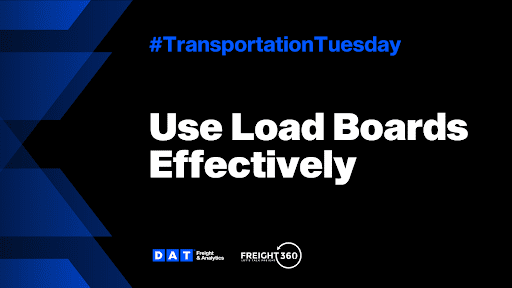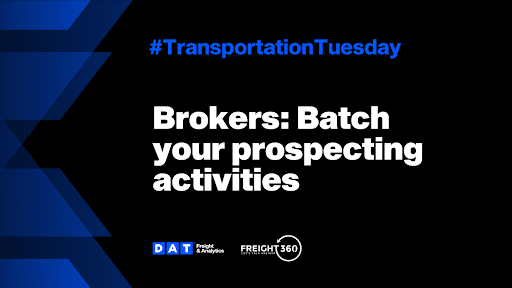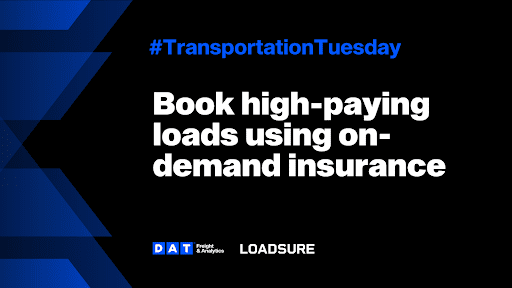In our Transportation Tuesday series, we’re partnering with industry leaders to share tips on how you can improve your business success and growth. This week’s tip is brought to you by Freight 360.
Load boards are the open market of the trucking industry, a place where freight brokers and motor carriers can connect to share their available loads and trucks. However, it’s easy to overlook some common (and uncommon) load board tools.
Here are five ways you can use a load board to its full potential to to compete more effectively.

1. Posting loads
As a freight broker, you can post your available loads for all the carriers to see. When posting a load, make sure you include all relevant information for that load, including:
- Origin
- Destination
- Pickup and delivery dates
- Required equipment
- Load weight
- Specific instructions or comments
- Target pay rate
- Your contact information
Including the above information helps carriers decide if they have the capability to move your load at the listed price. Bad or incomplete information on a load board posting wastes everyone’s time, so make sure you double check your posting before you save it.
2. Searching posted trucks
Don’t just post a load and pray that you get a phone call. Load boards have a function where you can search for trucks that match your load. Simply search the lane, equipment type, and date for your load, and you’ll see a list of available trucks that match your search. You can also sort the results by proximity to your pickup location.
Keep in mind that you lose some negotiating power when you call out to a truck versus fielding an inbound call. When brokers call carriers, the broker needs something that the carrier has. When carriers call brokers, it’s the carrier that needs something that the broker has. Even though brokers and carriers both need each other, whoever makes the outbound call usually has less negotiating leverage than the receiver of that call.
3. Search other posted loads
See what your competition is doing. You can search for available loads that are similar to yours to get an idea of how many other brokers are competing for the same carrier capacity. You might even discover other brokers who are competing for the same customer freight.
Having this information will help you refine your posting strategy.
4. Carrier directory
Carrier directories can help you find carriers based on their home location, equipment type, and many other criteria. This is a great tool to use when trying to find a back-haul carrier later in the week.
If you can give a load to a driver that gets them close to home at the end of the week, you can usually hire them at a lower-than-market average cost.
5. Rating tools
You need to know the market rates and how they’ve changed recently. Is a carrier asking for too much money? Are you offering too little? Understanding the range or rates in the market will keep you and your carriers honest with your rates.
Don’t forget that rates are just averages. Other factors such as the load’s urgency, driver’s destination, and even holidays will affect rates.
Have a tip to share or want some advice?
If you want to share your own insight and be featured in our next Transportation Tuesday Tip or if you want us to dive deeper into a challenge you’re facing, email us at tips@dat.com.
About Freight 360
Freight 360 is a community for freight brokers where you will find training and content on everything freight. Freight 360 believes that making transportation knowledge accessible for all creates efficiency within the industry.
Join Freight 360’s community to stay updated on freight brokering trends.


